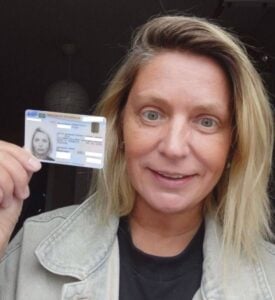We will optimize your tax burden and submit all reports for you!


We work with licensed Russian and English-speaking tax experts
(Gestor Administrativo No. 3776 Icogam)

We will take on the full range of tax-related procedures, including tax planning and reporting.

We will use all available deductions and reduce your taxes.

Are you making income or doing P2P exchanges in crypto? We will tell you how to do it safely.
"Gestor" will tell you how to work with VAT in Spain correctly.
We will do everything to reduce your tax expenses

Step #1

Step #2

Step #3
Services
Consultation with a Russian-speaking "hestor"
- To sort out your case;
- To answer all questions about the Spanish tax system;
- To tell you how you can save on taxes/declare cryptocurrency;
- Written consultation is possible.
In 1 hour
Turnkey accounting for your business
- It is necessary for all nomads who applied as individual entrepreneur/self-employed and opened Autónomo in Spain;
- We will take on all the bureaucratic procedures and risks associated with taxes, their planning and reporting;
- A tax consultant will determine and reduce the amount of your taxable base using benefits and various loopholes developed over years of practice.
with monthly payment (+ 21% VAT when purchasing in Europe)
when paying for a year in advance (+ 21% VAT when purchasing in Europe)
Opening of Autónomo and staging in social security
- Mandatory procedure for all nomads who applied as Self-Employed/Individual Entrepreneurs;
- The service is completely remote.
for the service
Issuance of digital signature
- The El Relocator team will help you to obtain the digital signature required to access Spanish government services: Ayuntamiento; DGT (State Automobile Inspectorate), Tax Office (AEAT);
- It is done remotely.
for the service
Questions about Taxes and Accounting in Spain
Individuals in Spain pay taxes depending on their residency status. There are two key taxes:
1. Personal Income Tax (IRPF) — for Spanish tax residents. This tax applies to income from employment, self-employment (as an autónomo), rental income, capital gains, and dividends. It is progressive, with rates ranging from 19% to 48%, depending on income level.
However, employed digital nomads and startup founders may benefit from the Beckham Law, which applies a flat 24% rate on Spanish-sourced employment income. Passive income and dividends from abroad do not need to be declared under this regime.
2. Non-Resident Income Tax (IRNR) — for non-residents who earn income from Spanish sources (e.g. renting out property or receiving dividends from a Spanish company). Non-residents are also subject to taxes on movable or immovable assets located in Spain.
These are interconnected steps. You cannot legally register as autónomo (self-employed) without also registering in the Spanish Social Security system (Seguridad Social).
Along with paying taxes, autónomos must pay monthly social security contributions. New autónomos can access a reduced flat rate of €80/month for the first year. This can be extended to a second year if your annual income is below the minimum wage (SMI).
In some regions (e.g., Madrid, Andalusia), Social Security contributions are reimbursed during the first year, making it essentially free. From 2024, this benefit also applies in the Canary Islands, Extremadura, Galicia, Balearic Islands, and La Rioja. After the reduced period, contributions are income-based.
- IRPF (Personal Income Tax) — yearly, filed between April and June.
- IVA (Value-Added Tax) — typically quarterly.
- IS (Corporate Tax) — annually, depending on the company’s fiscal period.
You must pay the Property Tax (IBI), which is set by the local municipality and is usually 0.4–1.1% of the cadastral value.
If the property is rented out, you must also pay IRNR (Non-Resident Income Tax) at 24% on rental income (with eligible expense deductions).
If the property is not rented, tax is still charged on “deemed income” for owning the property.
- Track income and expenses
- File quarterly and annual tax returns
- IRPF (Personal Income Tax)
- IVA (VAT), if applicable
- Social Security contributions (Seguridad Social)
- 1. Apply for the Beckham regime (if eligible)
- 2. Use available tax deductions
- 3. Consult a tax advisor to avoid mistakes or penalties
- 4. Use professional help to ensure proper declarations and maximize deductions
- Fines (from 50% to 150% of the unpaid amount)
- Late fees (0.5% for the first month, increasing thereafter)
- Bank account freezes or issues with immigration documents




















